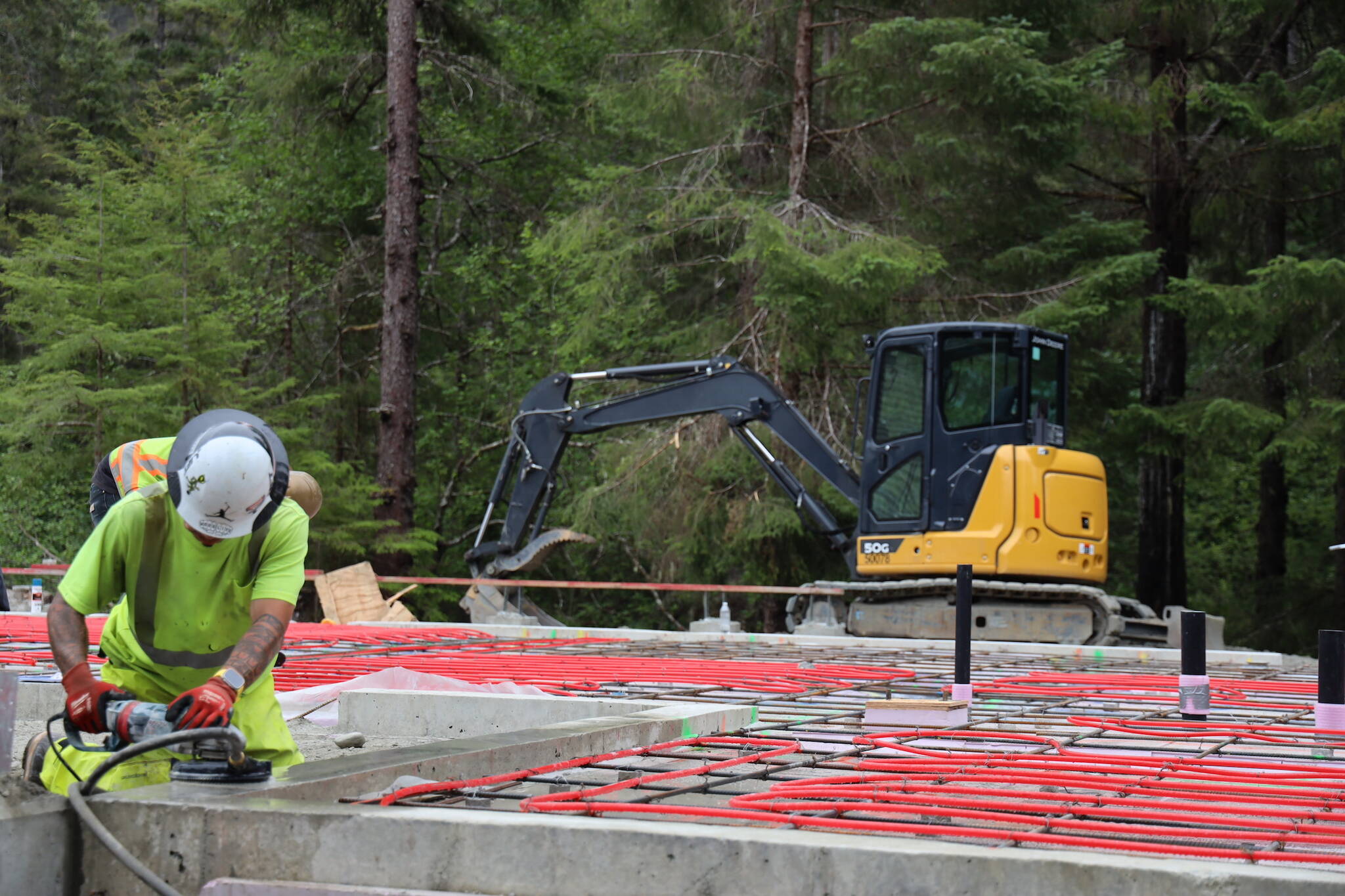A place dedicated to helping women recently released from prison find success, safety and security as they reenter back into society is reopening in Juneau after years of absence.
When Haven House originally opened in 2015, it was known as Juneau’s first transitional home for women who were recently released from prison or paroled. It served residents for nearly five years, allowing them the ability to attend programs, support groups and cultural activities. For many people it eased the myriad challenges they typically face after being released from incarceration back into the general public.
However, in 2020 the building suffered flooding which resulted in structural damage and ultimately necessitated that it be demolished. That occurred in August of 2021.
Last week the Central Council Tlingit and Haida Indian Tribes of Alaska announced it would be reviving the shelter, and construction of a new facility in the Mendenhall Valley area began earlier this month. The tribe originally assumed operation of the shelter in October 2020 and currently operates two male non-congregate shelters as well.
The new non-congregate shelter is expected to be complete in spring of 2024, and will include nine private rooms and a shared living space for residents, along with a manager’s quarters. Women who leave prison or successfully complete substance abuse treatment will be able to stay at the shelter for up to two years, according to a statement by the Reentry and Recovery Manager Autumn Stachura.
According to Tlingit and Haida President Richard Chalyee Éesh Peterson, the revival of the women’s shelter is one of many steps Tlingit and Haida is taking to be a part of the solution to address recidivism.
“These sorts of facilities are desperately needed,” he said. “Our population (Alaska Native) while statistically, we’re a low population, we’re high in the prison system. We want to be doing everything we can to help our citizens get back and acclimated to society and find a productive life again.”
Currently, Alaska Native people are three times more likely to be incarcerated in Alaska than the rest of the population and have higher rates of re-arrest and reconviction than offenders of any other ethnicity in Alaska, according to the ACLU of Alaska and Alaska Jucidial Council, respectively.
Peterson said the shelter is one tool that can give hope to tribal citizens living the difficult reality of life after prison. He said the Reentry and Recovery Department has been working closely with the Alaska State Department of Corrections in anticipation of the shelter’s opening. He said that come the time when construction is complete this spring, “we hope to have strong candidates already selected, preapproved and ready to move in.”
“Our goal is to walk this journey with these women, make sure that they have the resources and the support to be successful,” he said.
During an open house event last week, Peterson said the tribe met with neighbors of the future shelter, and listened to their feedback and concerns. He said it was “heartening” to hear that a majority of neighbors supported the shelter, and said Tlingit and Haida would be taking into account the concerns raised as well.
“Having a strong program in place is going to help make sure that this is as smooth of an operation as possible, but we can never guarantee you know that everything’s gonna be smooth every day,” he said. “But we’re gonna have structure in place.”
• Contact reporter Clarise Larson at clarise.larson@juneauempire.com or (651)-528-1807.

